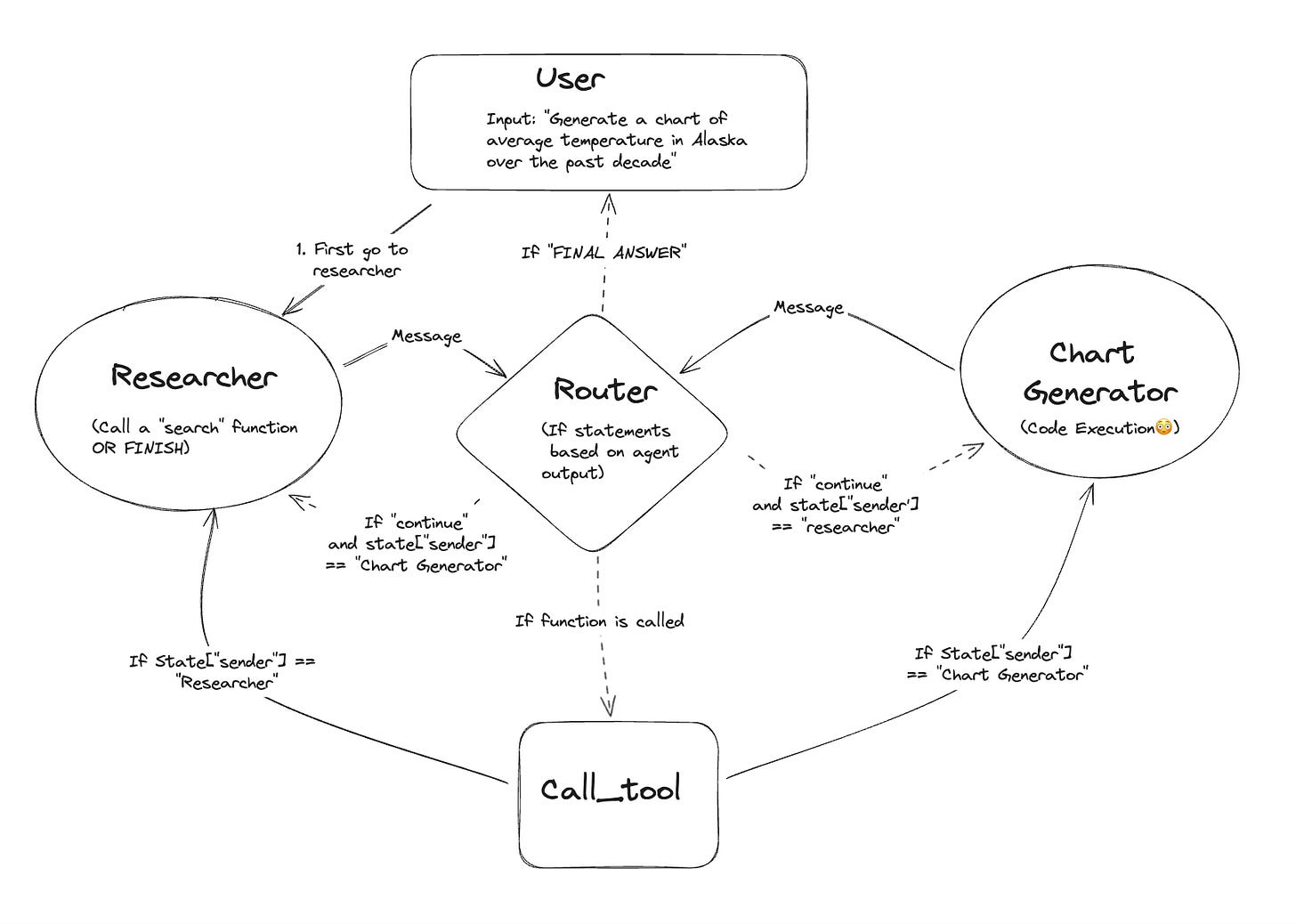Agentic AI Framework and Agents in Software Development
Paradigm shift in system's problem solving
In recent years, the direction of Artificial Intelligence (AI) has seen a shift toward more autonomous and intelligent systems capable of self-directed problem solving and task execution. One such framework that is making waves is the Agentic AI Framework.
This framework, alongside the concept of agents, is revolutionizing how AI systems are developed, deployed, and integrated into software engineering workflows. In this article, we will explore the Agentic AI Framework, its role in software development, and how it can significantly enhance both the capabilities and efficiency of software engineering teams.
What is the Agentic AI Framework?
The Agentic AI Framework is designed to enable AI systems to operate autonomously by allowing them to
act,
plan, and
make decisions based on goals or tasks
without requiring continuous human input.
An agent, in this context, is a software component that can take actions in an environment, reason through those actions, and adapt to changing problem statements.
The key difference between traditional AI systems and agent-based systems is the ability of agents to self-manage their workflows, utilizing data from external sources like databases or Internet and applying reasoning to improve decision making over time.
At the core of the Agentic AI Framework is the concept of goal-oriented autonomy. Agents are capable of identifying their objectives, retrieving necessary information, making decisions, and executing actions accordingly. This results in a highly flexible and adaptive AI system that can operate across different domains and tasks, without the need for manual reconfiguration each time the context changes. By integrating these agents with software systems, organizations can significantly reduce human intervention, streamline operational tasks, and improve overall productivity.
Key Characteristics of Agents in Software Development
In the context of software development, agents within the Agentic AI Framework offer a range of benefits that can automate, optimize, and accelerate development processes. Below are some of the key characteristics and functionalities of agents:
Autonomy: Agents can operate independently, which means they can initiate tasks, make decisions, and perform actions without requiring direct supervision. This is particularly useful for repetitive tasks such as code generation, bug detection, or dependency management.
Adaptability: Agents within this framework are designed to adapt to changing environments. They can refine their decision-making models based on new data or feedback, learning and improving over time.
Collaboration: Multiple agents can work together within a system, with each agent focusing on different aspects of a task or problem. This collaboration can enhance productivity, as agents can divide the workload based on their specific capabilities and expertise.
Self-improvement: Through mechanisms like reinforcement learning or self-supervised learning, agents can continue to improve their performance over time, reducing the need for manual retraining.
Task specialization: Agents can be trained or configured to perform specific tasks, such as optimizing a database query, refactoring code, or deploying a microservice. This specialization enhances efficiency and precision.
Use Cases of Agents in Software Development
Automated Code Generation and Refactoring: In modern software engineering, agents can assist developers by generating code snippets based on high-level requirements. They can also suggest or automatically perform code refactoring, adhering to best practices and improving code quality.
Automated Testing and Debugging: Agents can autonomously generate and execute test cases, analyze results, and even debug issues within the software. By leveraging continuous integration and continuous deployment (CI/CD) pipelines, agents can ensure that applications remain functional and bug-free without manual intervention.
DevOps and Deployment Automation: In DevOps workflows, agents can automate the entire deployment pipeline, from building and testing the software to deploying it on production servers. They can make real-time decisions based on monitoring feedback, ensuring that the system is always operating at peak performance.
Data-Driven Decision Making: With their ability to interact with external data sources, agents can assist in decision-making by analyzing and processing large volumes of data. They can identify trends, optimize workflows, and even recommend architectural improvements.
Example
Following diagram describes how Agents which are specialized in their fields are connected to each other for a common goal / task.
Source: LangChain
Conclusion
The Agentic AI Framework is a game-changer for software development, enabling developers to build more intelligent, autonomous, and adaptable systems. By integrating agents into software workflows, organizations can automate complex tasks, enhance productivity, and reduce the need for human intervention. For software engineers with experience in managing large-scale systems, the transition to agent-based AI solutions offers a path to more efficient, scalable, and intelligent software development practices. As AI continues to evolve, the Agentic AI Framework promises to be at the forefront of next-generation software engineering.
Course Details : http://llmagents-learning.org/f24




